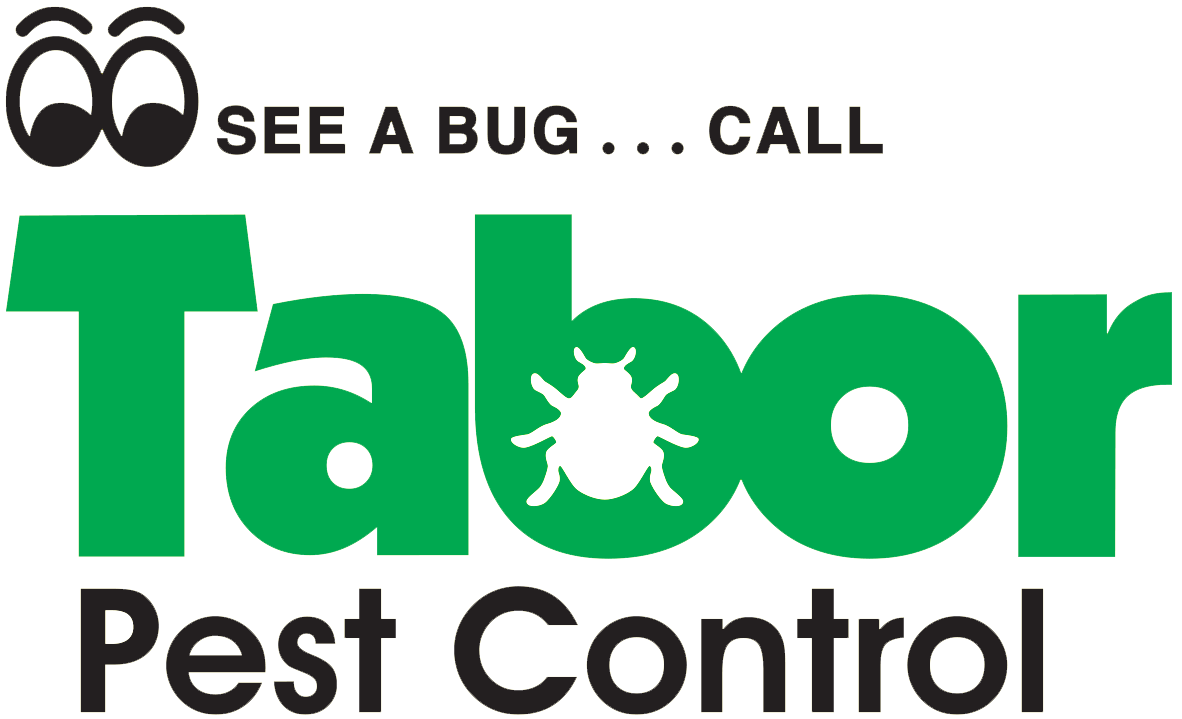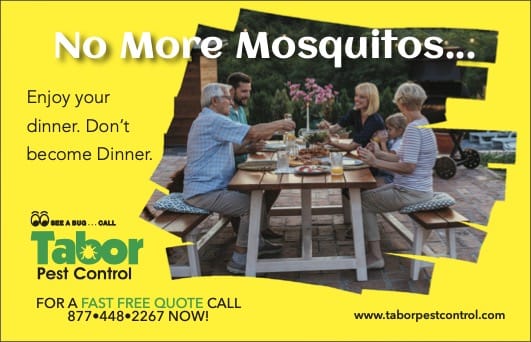The Pros and Cons of Mosquito Spraying: Helpful or Hazardous?
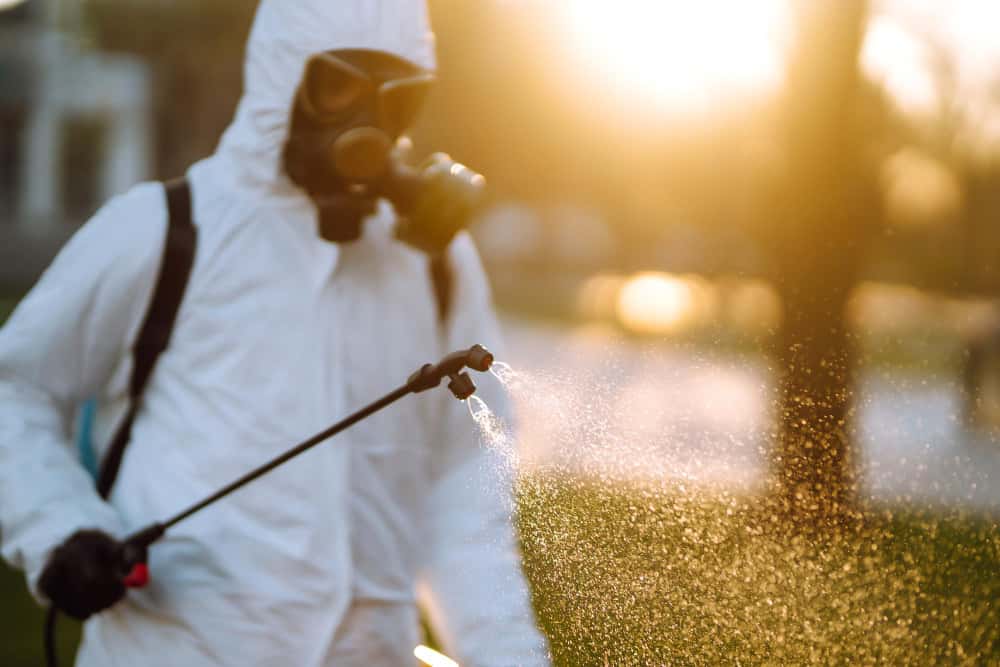
Beyond being an unrelenting pest and a universal nuisance, Mosquitos are the world’s deadliest animal. They are responsible for over 1 million deaths yearly, spreading life-threatening diseases, including malaria, yellow fever, and dengue.
While these insects do outnumber us by about 16,000 to 1, different methods of pest control offer some means of fighting back.
Mosquito Spraying is a very effective and fairly accessible control method that can deliver instant results. It’s a localized solution that helps prevent the spread of disease, supports public health, and limits exposure to these annoying and dangerous pests.
On the other hand, it raises questions of safety for the environment, humans, and pets. Its effectiveness is fairly short-term and non-targeted, failing to address the source and potentially causing the development of resistance.
What are all of the different methods of mosquito control?
There are three main approaches to combating mosquitoes: source reduction, biological control, and personal protection.
1. Source Reduction
Source reduction involves eliminating areas where mosquitoes can breed.
- Effective construction and maintenance of infrastructure can reduce mosquito breeding habitats. Mosquitos breed in still water that gathers in ditches, retention ponds, and water management structures that fail to flow effectively. Planning this infrastructure with the intention of limiting breeding habitats helps to control the mosquito population.
- Eliminating still water by filling wet areas with soil and draining outdoor containers such as trash cans will force mosquitoes to breed elsewhere.
- Modifying landscapes to ensure the effective drainage of water is another important piece of source reduction.
2. Biological Control
Biological control is used to eliminate existing larvae and adult mosquitoes.
- Introduction of predators such as birds, fish, and frogs has been shown to have some impact on controlling mosquito populations.
- Larviciding introduces low concentrations of chemicals to still water to kill off mosquito larvae and pupae without impact on other water-inhabiting organisms.
- Adulticiding uses trucks and aircraft to spray pesticides and kill mosquito populations. This method will be closely examined throughout this article.
Treating large areas with larvicides and insecticides can be difficult and dangerous. It is best left to professionals. The Tabor Pest Control team follows strict guidelines and regulations to ensure environmental and personal safety and ensure effectiveness.
3. Personal Protection
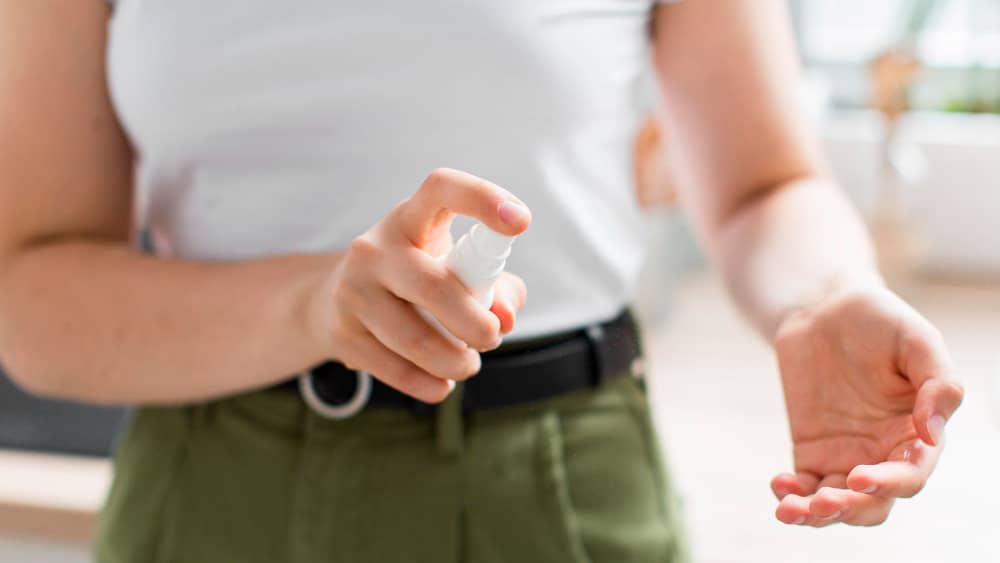
Personal protection creates physical or chemical barriers between people and mosquitoes.
- Spray-on repellent confuses mosquitoes and prevents them from seeking us out.
- Nettings such as pool cages and bed nets physically prevent mosquitoes from reaching us.
- Foggers, candles, and mists apply repellents to large areas so that they do not need to be applied to us directly.
What is Mosquito Spraying?
Mosquito spraying is a method employed to reduce mosquito populations in target areas and combat the spread of mosquito-borne diseases. The process involves the strategic application of insecticides in areas known to harbor and breed mosquitoes.
Commonly used insecticides include pyrethrins, organophosphates, and larvicides. Spraying can be carried out using various methods, including ground-based sprayers, truck-mounted foggers, or aerial spraying, depending on the size and accessibility of the target area.
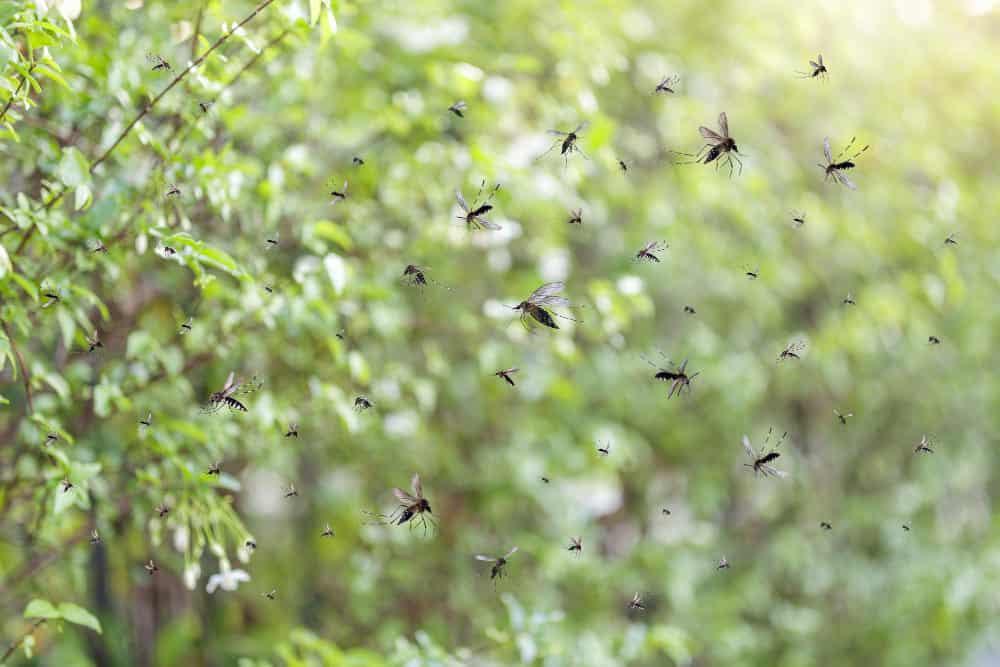
The primary goal of mosquito spraying is disease prevention and public health protection, but it can also be a quality-of-life measure for those in mosquito-prone areas.
It’s typically conducted by trained professionals who follow regulations and guidelines to ensure the safe and effective application of insecticides.
What are the Different Types of Mosquito Spraying?
Ground-based Sprayers:
- Utilized for smaller areas like residential neighborhoods or local parks.
- Involves professionals using handheld or backpack sprayers to apply insecticides.
- Allows for precise targeting of mosquito resting areas and breeding sites.
If your mosquito issue is getting out of hand, call the team at Tabor Pest Control to decide if this type of residential treatment is right for you.
Truck-mounted Misters:
- Ideal for larger areas such as parks, golf courses, or commercial spaces.
- Mounted on trucks equipped with spraying equipment.
- Releases a fine mist of insecticides to cover larger areas efficiently.
Aerial Spraying:
- Conducted by aircraft, making it suitable for vast or inaccessible areas.
- Involves releasing insecticides as a mist or ultra-low volume (ULV) spray.
- Provides effective coverage over large expanses of land, including rural or marshy areas.
Barrier Treatments:
- Focuses on treating specific areas, such as yards, gardens, or outdoor event venues.
- Involves applying insecticides to vegetation, structures, and other surfaces where mosquitoes rest or seek blood meals.
- Creates a barrier that repels or kills mosquitoes, reducing their presence in designated areas.
What are the Pros and Cons of Mosquito Spraying?
Pros
Mosquito spraying is effective, accessible, and localized, providing quick results to prevent the spread of disease and improve quality of life.
Effectiveness
- Mosquito spraying, when properly executed, can significantly reduce mosquito populations in treated areas.
- Targeting adult mosquitoes in their resting and breeding sites interrupts their life cycle, curbing their reproduction and population growth.
Accessibility
- Hiring an expert to spray for mosquitos is a fairly quick and easy process.
- Spraying can be done in small residential areas or large rural properties.
Speed of Results
- Within a short period, the application of insecticides can lead to a noticeable reduction in mosquito activity, providing immediate comfort to affected communities.
Disease Prevention and Public Health
- Mosquito spraying plays a vital role in preventing mosquito-borne diseases, thereby safeguarding public health.
- By reducing mosquito populations, it minimizes the transmission of diseases such as malaria, dengue fever, Zika virus, and West Nile virus.
Localization
- Mosquito spraying allows for targeted control efforts, focusing on specific areas with high mosquito activity or disease prevalence.
- This localized approach optimizes the allocation of resources, effectively addressing mosquito-related concerns where they are most needed.
Quality of Life Improvement

- By reducing mosquito populations, spraying enhances the quality of life for individuals living or working in treated areas.
- It enables people to enjoy outdoor activities, such as picnics, barbecues, and sports, without constant annoyance or the risk of mosquito-borne diseases.
- It helps eliminate the need for constant application of spray repellents, candles, and foggers.
Cons
Mosquito Spraying is a short-term solution that fails to address the source of the issue. It raises concerns regarding the environment, health, and resistance development.
Environmental Impact
- Insecticides can have a negative impact on non-targeted insects if done recklessly. Insects like bees and dragonflies can be affected.
- Killing large populations of mosquitoes can also create problems for their natural predators by eliminating a food source.
- This leads to a lack of biodiversity.
Health Concerns
- Prolonged or improper exposure to insecticides can lead to respiratory issues, skin irritations, or other health problems, particularly for vulnerable individuals.
- Similar outcomes may arise for pets and wildlife.
Resistance Development
- Frequent and indiscriminate use of insecticides can lead to the development of resistance in mosquito populations.
- Over time, mosquitoes may become less susceptible to the chemicals used in spraying, rendering control efforts less effective in the long run.
Failure to Address the Source
- Mosquito spraying primarily targets adult mosquitoes, often overlooking the breeding sites where mosquitoes reproduce.
- Neglecting the elimination or treatment of stagnant water sources can result in a continuous cycle of mosquito populations and re-infestation.
Lack of Sustainability of Results
- Spray treatments generally last 4-8 weeks before populations return to normal levels.
- This means that the treatments have to be regular and continuous.
How Does Mosquito Spraying Compare to Other Methods?
Mosquito spraying has some distinct advantages and disadvantages when compared to other methods.
Source Reduction Methods
Spraying insecticides is much easier and more accessible than systematically eradicating mosquito breeding grounds. It does not require any terraforming or rebuilding of infrastructure. In some cases, it is completely impractical to eliminate all potential mosquito breeding habitat.
On the other hand, source reduction is a far more sustainable method of controlling mosquitoes as it can reduce populations in a given area permanently.
Personal Protection Methods
Mosquito spraying is generally a longer-lasting solution compared to repellants. It frees individuals from the burden of constantly reapplying bug spray, lighting candles, or running bug foggers. It also allows the freedom to enjoy the outdoors beyond a netted area.
Additionally, by killing the mosquitoes rather than repelling them, it tends to be a more definitive and effective solution.
Compared to repellants, mosquito spraying poses a bigger threat to organisms and the environment. It can also be more expensive as it is not usually a DIY solution.
The Tabor Pest Control team is always ready to answer your questions. Give us a call to decide which mosquito control approach is best for you.
Frequently Asked Questions
Does mosquito spray harm beneficial insects?
Yes, mosquito spray can harm beneficial insects such as bees and butterflies. Insects are an essential part of the ecosystem, and they play a vital role in pollination and maintaining balance in the food chain. When you spray your yard for mosquitoes, you also kill off that food source and make it more difficult for birds to successfully reproduce. It is important to consider the impact of mosquito spraying on beneficial insects before deciding to use it
Can mosquito spray be dangerous for pets?
Yes, mosquito spray can be dangerous for pets. Some mosquito sprays contain chemicals that are toxic to pets, and exposure to these chemicals can cause serious health problems. It is important to keep pets indoors or in an area away from sprayed areas for several hours after spraying.
What are the potential health risks of mosquito spraying for humans?
Mosquito spraying can pose potential health risks to humans, especially those with respiratory problems. The chemicals used in mosquito sprays can irritate the lungs and cause breathing difficulties. In addition, exposure to these chemicals can cause skin irritation and other health problems. It is important to follow the instructions on the label and take precautions to minimize exposure.
Is mosquito spraying worth the cost?
The cost of mosquito spraying can vary depending on the size of your yard and the frequency of spraying. While mosquito spraying can be effective in controlling mosquito populations, it is not a permanent solution.
References
- https://www.rti.org/insights/mosquito-facts
- https://a-z-animals.com/blog/how-many-mosquitoes-are-in-the-world/
- https://lcmcd.com/faqs/q-what-methods-are-used-to-control-mosquitoes/#:~:text=There%20are%20four%20basic%20approaches,source%20reduction%2C%20larviciding%20and%20adulticiding.
- https://www.orkin.com/pests/mosquitoes/what-eats-mosquitoes
- https://www.buzzoffmosquitosolutions.com/difference-between-mosquito-fogging-vs-spraying
- https://activepestcontrol.com/mosquitoes/treatment/how-long-does-mosquito-treatment-last/#:~:text=For%20the%20most%20part%2C%20mosquito,size%20of%20the%20mosquito%20population.
